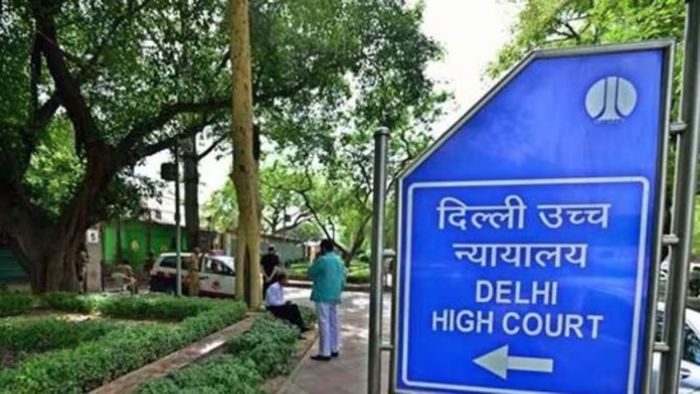Delhi HC grants transit bail to man over 'offensive' social media post on people of Nagaland
The Delhi High Court has granted transit bail for two weeks to a man, booked for a social media post allegedly inciting communal hatred and disharmony pertaining to the people of Nagaland.

- Oct 24, 2024,
- Updated Oct 24, 2024, 8:57 AM IST
The Delhi High Court has granted transit bail for two weeks to a man, booked for a social media post allegedly inciting communal hatred and disharmony pertaining to the people of Nagaland.
The court said that there was nothing in the transcript of the video which prima facie indicates the remarks were made by the applicant solely because the complainant or people of Nagaland belong to a scheduled caste.
"While the act of the applicant may have the impact of maligning the people residing in Nagaland, the same prima facie does not appear to be for the reason that the complainant belongs to a scheduled caste," Justice Amit Mahajan said.
An FIR was lodged against applicant Akash Tanwar, a resident of Delhi, in 2023 in Nagaland under the Indian Penal Code and the SC/ST Act.
He was arrested by Nagaland Police from the national capital last November. The trial court had refused to grant transit remand to him but instead gave interim bail for 10 days, pending further proceedings.
Also Read: Nagaland band Fifth Note clinches top spot in grand finale of Ticket to Hornbill battle
He approached the high court seeking transit bail to enable him to approach the court of competent jurisdiction in Nagaland. Tanwar also sought quashing of the FIR.
The court said the applicant should be afforded the opportunity to seek appropriate remedies before the court having proper territorial and subject-matter jurisdiction over the case.
"Given that the FIR was registered in Nagaland alleging that the applicant, with the intent to incite communal hatred, enmity, and disharmony made a video pertaining to the people in Nagaland and posted it on social media. Therefore, an application seeking bail in terms of law laid down by... would have to be filed before the concerned court in Nagaland.
"It is only fair and in the interest of justice and judicial propriety that the applicant be permitted to pursue the legal recourse available to him in that forum," the court said.
It granted transit bail to the man for a limited period to facilitate his access to the appropriate legal remedies in Nagaland.
The applicant's counsel contended that registration of FIR in Nagaland was an abuse of the legal process and an act of harassment,as he had no connection to that state.
It was argued that the FIR was lodged merely because the complainant, who was based in Nagaland, was offended by the content, even though the actions leading to the post took place in Delhi.
The counsel for the state of Nagaland submitted that the video made by Tanwar directly targeted the people belonging to Nagaland and had caused enmity between communities by commenting on the food habits of the Naga people in a highly offensive and discriminatory manner.
The court, while granting transit bail to the man, observed that the social media post, while offensive to certain communities, did not appear to target individuals based on their caste or tribal identity.
"Furthermore, there is no evidence to suggest that the petitioner intended to humiliate or degrade any specific individual or group on the basis of caste," it said.
The court dismissed Tanwar's plea seeking quashing of the FIR, with the liberty to file a similar petition before the concerned court in Nagaland.
"It is undeniable that the alleged offence had significant consequences in Nagaland, giving the courts their valid jurisdiction. Therefore, both this court and the courts in Nagaland would have the jurisdiction to adjudicate this matter. At the same time, this court must prioritise the convenience of all parties and avoid conflicting rulings from multiple jurisdictions," it said.